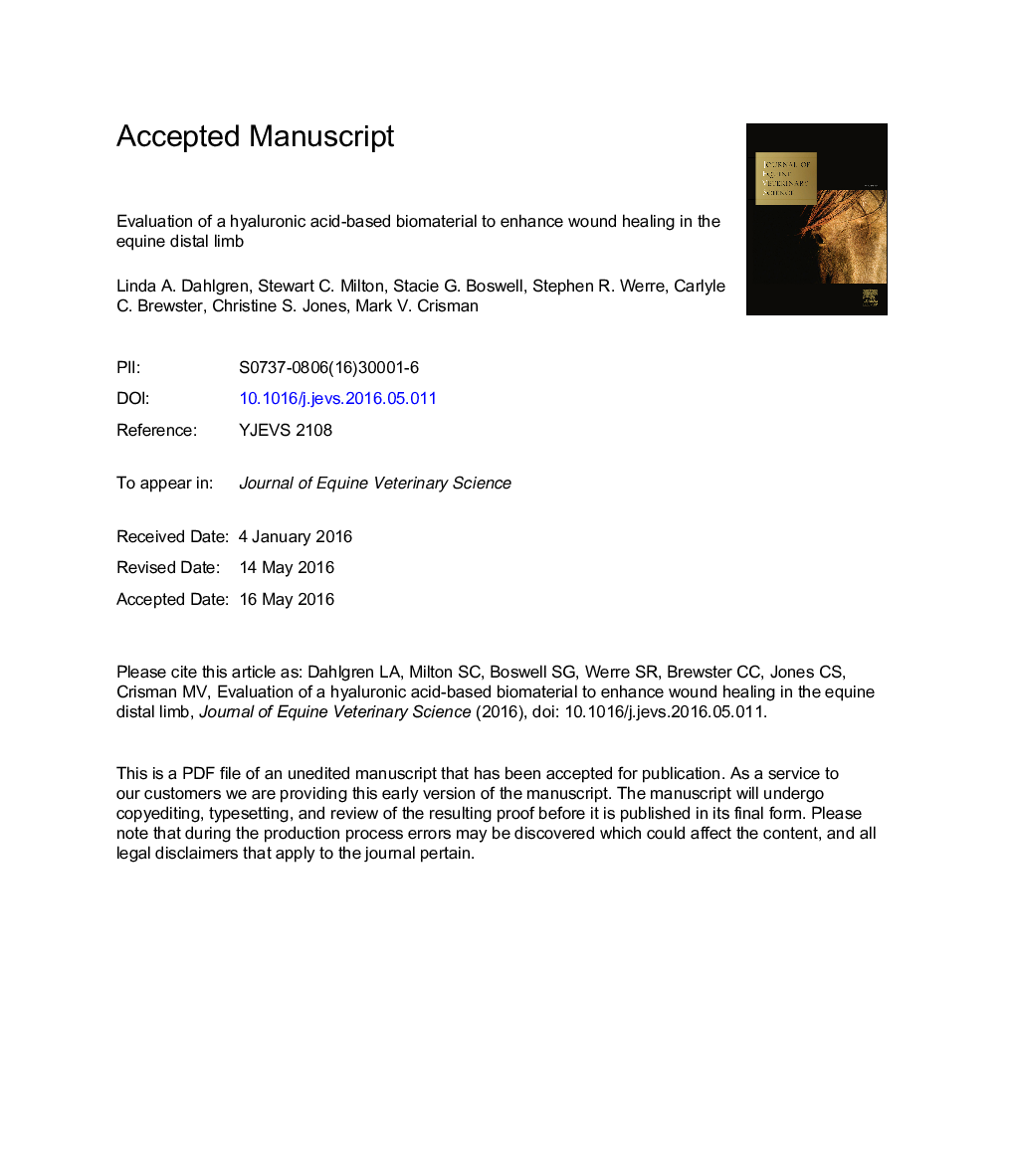| Article ID | Journal | Published Year | Pages | File Type |
|---|---|---|---|---|
| 8483527 | Journal of Equine Veterinary Science | 2016 | 39 Pages |
Abstract
The objective of this study was to evaluate the ability of a cross-linked hyaluronic acid-based biomaterial (CMHA) to promote healing in an equine distal limb wound model. Three 6.25Â cm2 full thickness skin wounds were surgically created on the dorsomedial metacarpus and metatarsus of each of four limbs of eight normal adult horses under general anesthesia. Three days after surgery, wounds were photographed and one of four treatments was applied to all three wounds on a single limb: control (no CMHA), single application of CMHA gel, multiple applications of CMHA gel, and multiple applications of CMHA film. Wounds were assessed for quality of repair tissue and photographed for image analysis at bandage changes every 4Â days throughout the 47-day study. Exuberant granulation tissue was excised as needed and weighed. Size of granulating wounds was analyzed by repeated measures analysis of covariance and rate of wound healing assessed using a logistic decay model fitted to the data by nonlinear least-squares regression. Significance was set at P < .05. No adverse effects of CMHA were noted. There was a significant day by treatment interaction; however, overall, there were no significant differences among treatment groups (P = .09). Wounds treated with CMHA films decreased to half their original size significantly faster, were significantly smaller on day 31, and healed with higher quality, less fragile epithelium than wounds in other treatment groups. Treatment of distal limb wounds in horses may benefit from use of CMHA films to improve healing.
Related Topics
Life Sciences
Agricultural and Biological Sciences
Animal Science and Zoology
Authors
Linda A. Dahlgren, Stewart C. Milton, Stacie G. Boswell, Stephen R. Werre, Carlyle C. Brewster, Christine S. Jones, Mark V. Crisman,
